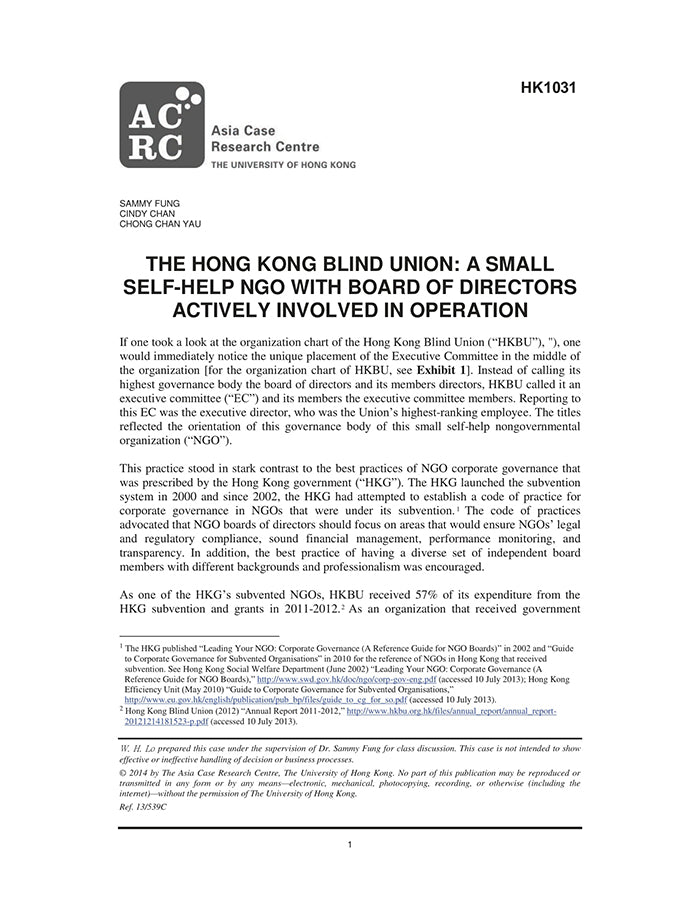The Hong Kong Blind Union: A Small Self-help NGO With Board Of Directors Actively Involved In Operation
受取状況を読み込めませんでした
If one takes a look at the organization chart of the Hong Kong Blind Union ("HKBU"), one will easily notice the concept of "execution" sits prominently in the middle of the organization. Instead of calling its highest governance body the board of directors and its members directors, HKBU calls it an executive committee ("EC") and its members the executive committee members. Reporting to this EC is the executive director, who is the Union's highest-ranking employee. The titles reflect the orientation of this governance body of this small self-help nongovernmental organization ("NGO"). This practice stands in stark contrast to the kind of NGO corporate governance that is prescribed by the Hong Kong government ("HKG"). Since the HKG launched its subvention approach to NGOs in Hong Kong in 2002, it has attempted to establish a code of practices for corporate governance in NGOs that are under its subvention. The code of practices advocates that NGO boards of directors should focus on areas that would ensure NGOs' legal and regulatory compliance, sound financial management, performance monitoring, and transparency. In addition, the best practice of having a diverse set of independent board members with different backgrounds and professionalism is encouraged. As one of the HKG's subvented NGOs, HKBU received 55% of its expenditure from the HKG subvention and grants in 2011-2012. As an organization that receives government funding and grants, that is, a subvented organization, HKBU is subject to the governance and audit system and framework imposed by the government. To a great extent, this governance and audit approach and framework is derived from the business sector's corporate governance practices. However, as a self-help organization for people with visual impairment, HKBU presents a compelling case for why these control and monitoring roles and practices of NGO boards should not necessarily be universally applicable to all subvented organizations in Hong Kong. Despite the HKG's guidance on the compliance and monitoring function of NGO corporate governance, HKBU sees its board, that is, the executive committee, and the Union's operation staff work closely as a unified team to achieve the NGO's missions and to facilitate fundraising. Against the backdrop of the HKG's governance advocacy, what roles and duties do HKBU's EC and its members fulfill? What are the results? And most importantly, why did HKBU adopt such practices?
【書誌情報】
ページ数:20ページ
サイズ:A4
商品番号:HBSP-HK1031
発行日:2014/1/8
登録日:2014/4/21


